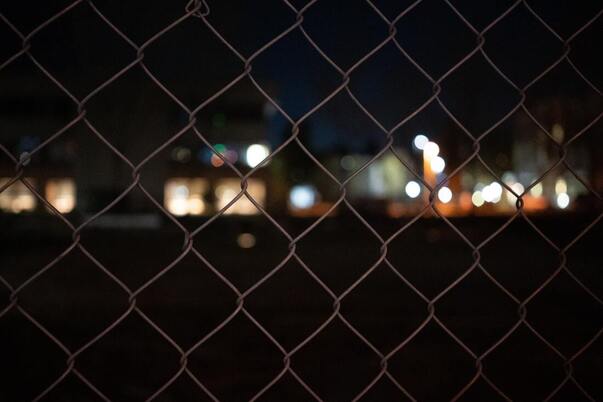|
Photo by Pop & Zebra on Unsplash It seems reasonable to most of us who live in first world countries that each workplace be required to maintain minimum safety standards. However, there seems to be an increasing number of voices in recent years arguing that the free market should dictate everything, including workplace safety. This is often followed by claims that if unsafe working conditions are found, a worker can simply quit and find a new job. This raises the question: Why do we have safety laws in the first place? To answer that, here is a quick overview of the history that brought us to where we are today. Before the industrial revolution, which started in the mid 18th century, there were many small, family-owned shops, producing small amounts of goods. Mass production was uncommon and limited to specific industries. Although accidents did happen back then, they were rarely happening on a large scale and to a large number of people at a time. This changed with the invention of machines and the sudden ability to create products on an industrial scale. Factories sometimes required hundreds of workers to operate these machines, and the key to effective production was to produce as much as possible, in the shortest possible time and with the least amount of money invested. This became a problem for millions of workers worldwide. The first known records go back to 1750 BC Mesopotamia, where some aspects of regulations around safety were implemented by society. Workplace safety as we know it today, however, only began in the 19th century. In England, a safety report in 1784 resulted in the first Factory Act in 1802. It started with a large number of workers in the factory and the nearby village falling sick due to highly transmissible disease. One of the regulations mandated fresh air in the factories, which up until that time had offered little to no air flow. Further accidents and attempts to prevent them forced the Cotton Mills and Factories Act 1819, which forbade kids under 9 from working, and allowed kids younger than 16 to work 12 hours a day. Later, the Labour in Cotton Mills Act 1831 forbade workers younger than 21 from working night shifts. In 1832, to further prevent workplace-related accidents, the workday for workers 18 or younger was shortened to 10 hours. Acts on operating the production machinery had also been introduced that only allowed the machines to be cleaned when they were not running. Cotton mills weren’t the only industry that had to improve worker safety in order to limit accidents and injury. Similar regulations around mining, railroad industry and agriculture were developed. With passing years regulations forbade all children to work in factories, standardized 8 hour work days, allowed labor unions to exist and even regulated the amount of breaks. Each step in this process was preceded by lost lives, pain and mutilation. The Occupational Health and Safety acts that we know today in the US and Canada were created in the 1970s. They put emphasis not only at working conditions, but also on Health and Safety training. Both Sābanto - The Crimson River and Sābanto - The Copper Briar review the working conditions and safety of the working class of an imaginary universe that is not that far from our own. The stories explore what would happen if workplace laws no longer existed, the workers had no one to advocate for them, the working hours were extended as much as possible to increase profits and the life and wellbeing of the workforce no longer matter. I want Sābanto to be a cautionary tale of the pain and suffering that can be inflicted when profits are more important than a human being. Because so many people fought for these laws through hundreds of years and many had paid for them with their health and even lives, as a society we should not try to reverse the process. Sources:
https://safetylineloneworker.com/blog/history-of-workplace-safety https://www.linkedin.com/pulse/brief-history-workplace-health-safety-from-black-ilo https://en.wikipedia.org/wiki/Health_and_Morals_of_Apprentices_Act_1802 https://en.wikipedia.org/wiki/Factory_Acts#:~:text=The%20act%20had%20the%20following,p.m.%20and%20before%205.30%20a.m.
0 Comments
Many readers are familiar with suspense novels and thrillers where the protagonists have a specific goal that they want to achieve and must deal with obstacles in their way, look for clues, and fight the bad guys. Usually, the focus of these kinds of novels is on an individual, their choices, and the consequences of these choices. A couple of examples of such plots:
Although Dystopian Fiction (also called Speculative Fiction) can include thrillers, it doesn’t have to. Dystopian Fiction needs to be evaluated as social commentary. It’s often based on current events that seem harmless, imagined as part of an exaggerated trajectory which could one day become dangerous to humanity. It explores not only society and politics as a whole, but often delves deep into human nature and exposes the good and bad qualities of characters facing a new-to-us reality. Dystopian Fiction deals first with society, then about the individual’s place in it. A few examples of such plots:
When reading Sābanto, the reader should first focus on the post-war world, the degradation of the quality of living for most people except a few, and the political situation that is developing. It is important to note the sentiments, opinions, and values that people have. Only then can we understand the characters, their fears, goals, and their actions, because they are products of the society they live in.
One of my beta readers pointed me to this song “Have You Ever” by The Offspring (Album: Americana, 1998) and I agree that this song fits the story of Sābanto. I did some internet research on the meaning of this song, and there are a few different theories on what the song is about. Based on what I was able to find, I think this explanation is most fitting: It often feels as if the world is a ride we’re trapped on and we have very little control over our lives. What we see and experience leaves us broken, helpless, and alone. We slowly become numb and spiral into depression because we don’t believe we can make a difference, and the world becomes a dark place. The lyrics “have you ever” ask listeners who relate to these feelings to acknowledge them. We are not alone and many of us feel the same way. If we eliminate crime, however, everyone will be a winner, but if we all walk away, the future of the world remains unknown. At some point, we all need to take a stand and “leave the world as a better place.” The Offspring is an American rock band from Garden Grove, California, formed in 1984. The Offspring is often credited—alongside fellow California punk bands Green Day and Rancid—for reviving mainstream interest in punk rock in the 1990s. Falling, I'm falling
Falling, I'm falling Have you ever walked through a room But it was more like the room passed around you? Like there was a leash around your neck that pulled you through? Have you ever been at someplace Recognizing everybody's face Until you realized that there was no one there you knew? Well, I know Some days, my soul's confined and out of mind Sleep forever (I know) Some days, I'm so outshined and out of time Have you ever Falling, I'm falling Falling, I'm falling Have you ever buried your face in your hands 'Cause no one around you understands Or has the slightest idea what it is that makes you be? Have you ever felt like there was more? Like someone else was keeping score And what could make you whole was simply out of reach? Well, I know Someday, I'll try again and not pretend This time forever (I know) Someday, I'll get it straight but not today Have you ever Falling, I'm falling Falling, I'm falling (Falling) some days, my soul's confined (I'm falling) and out of mind Sleep forever (Falling) some days, my darkest friend (I'm falling) is me again Have you ever Someday, I'll try again and not pretend This time forever Someday I'll get it straight but not today Have you ever When the truth walks away, everybody stays 'Cause the truth about the world is that crime does pay So if you walk away, who is gonna stay? 'Cause I'd like to think the world is a better place When the truth walks away, everybody stays 'Cause the truth about the world is that crime does pay So if you walk away, who is gonna stay? 'Cause I'd like to make the world be a better place When the truth walks away, everybody stays 'Cause the truth about the world is that crime does pay So if you walk away, who is gonna stay? 'Cause I'd like to think the world is a better place I'd like to leave the world as a better place I'd like to think the world “This is War” is a single composed by Matthew Raetzel in 2017 featuring vocals by Richard Farrell. I was introduced to this song when it was suggested in my playlist as a song I might enjoy. Immediately it became one of my favorites and it is hard to listen to the lyrics and not hear in them the story of Sābanto. When Oliver arrives at the city of Riverlea as a stranger … I will leave it at that and have you, the readers, fill in the rest of the story when you have a chance to get hold of the first book of Sābanto, “The Crimson River”. I was unable to find any information about the origins of this song or the composer’s intent. Matthew Raetzel is an award-winning composer, sound designer and producer from Detroit, MI. He has written original scores for 4 feature films, over 30 short films, various television programming, gaming, and advertising projects. His work in film and TV has appeared in media outlets internationally, including Cannes, IDYLLWILD, Hollywood Black Film Festival, Syfy Channel, Superbowl 2016, National Geographic, Discovery Channel, Netflix, Amazon Prime, TV One, Filmapalooza, and more. Richard Farrell is a singer, pianist, guitarist and producer from Dublin, Ireland. His website says that he is “an intuitive, thoughtful and soulful musician, the sensitive kind.” Welcome
To the city Said a young man Sitting next to me Heard you're new in town Before you get around Here's a little tip from me Best stick to yourself No matter where you go Just watch your back And hold your own And if after that Trouble's knockin' at your door Remember my friend It's a town we're fighting for Welcome To your paradise Where the little man Pays a bigger price Take another hit Just get it over with We're a little sick you see Can't stay down no more We gotta make it known So get back up You're not alone And then hit 'em back Leave 'em grippin' to the floor You never had a choice They're knockin' at your door Remember my friend It's time And this is war It's time and this is war War Welcome To the untold Take a deep breathe Take the higher road It's what they always say As if they know the way They won't take it from me But don't ever doubt yourself 'Cause life ain't just a dream You make your own So kick and scream The people will act With a never ending force You never had the chance So whatcha' waitin' for? The day has come my friend 'Cause this is war It's time and this is war War Light another wick Better make it quick We ain't got a lot of time 'Cause the powers that be Don't want us free So they gotta dull our shine But when the dust settles in They're gonna pays for their sins I've made up my mind Gotta stand side by side As we drag all the lies To the tables for sacrifice It's time and this is war It's time and this is war War |



 RSS Feed
RSS Feed



